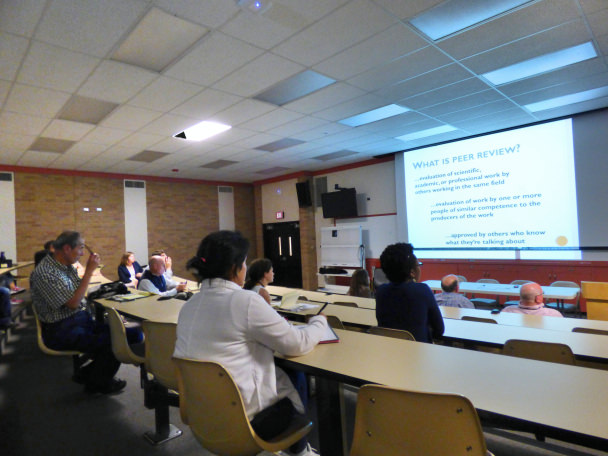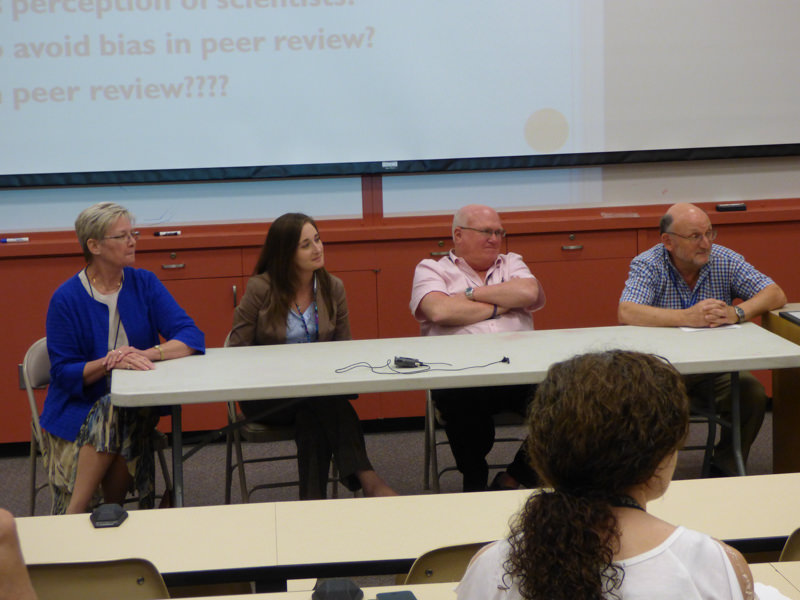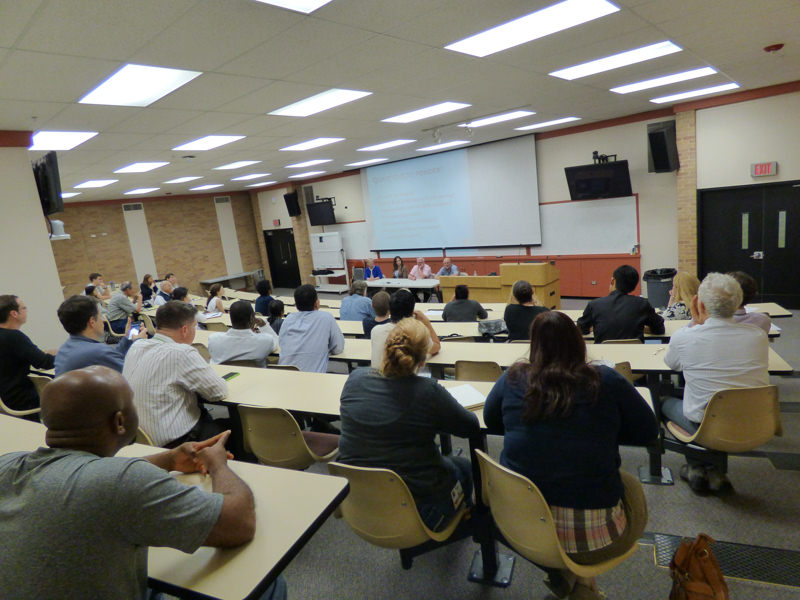Is There Bias in Scientific Peer Review?
 “Peer review is not without its challenges,” explained Dr. Linda McManus, director of the Office of Postdoctoral Affairs at UT Health Science Center at San Antonio.
“Peer review is not without its challenges,” explained Dr. Linda McManus, director of the Office of Postdoctoral Affairs at UT Health Science Center at San Antonio.
Dr. McManus spoke as part of a panel with Dr. Phil LoVerde, Dr. Teresa Evans, and Dr. Alan Frazer on Tuesday to address the responsibilities of peer reviewers in light of the recent Fiona Ingleby controversy.
Ingleby, a postdoc in evolutionary genetics at the
University of Sussex in the UK tweeted about the gender bias she encountered in the review process.
The tweet led to a removal of a reviewer and also the questioning of whether the review process should be changed.
Dr. LoVerde explained that while he has seen bias towards “hot topics”, he has never seen gender bias or bias against a group before.
“Many of the high-profile journals are competing,” Dr. LoVerde said. “With Nature and Science, they don’t just want papers that will advance science but are also of interest to the general public.”
Dr. LoVerde also mentioned that funding levels plays a huge role in the peer-review of grants.
“Peer review works well if enough money is available to fund the outstanding research,” he said. “If you have one bad review, it can influence others and you may not get funded.”
 He explained that because of the competitive nature of research grants, once you get a lower score, it can be harder to recover.
He explained that because of the competitive nature of research grants, once you get a lower score, it can be harder to recover.
“There are certain things you can do to help. For instance, if you have a competitor, you can request that they are not your peer-reviewer,” Dr. Frazer said. “However, the idea that your preferred reviewer is going to give you a positive review has not been my experience.”
Manuscripts like grants also are a potential area of bias. In the case of mixed reviews on a manuscript, getting a third reviewer in manuscript review is always an option. One can suggest reviewers usually up to three and also request the paper not be sent to competitors for review.
“We are human beings. So, is there bias towards well-known investigators? Yes, absolutely,” said Dr. Frazer. “However, I’ve never seen a junior researcher’s manuscript be rejected for being from an unknown or lesser known lab.”
Dr. LoVerde explained that scientists need to keep in mind that reviewers are not trying to give you a hard time but are trying to help improve your paper.
 “If you write well and your science is solid, then there is no reason why you shouldn’t be published,” Dr. LoVerde said.
“If you write well and your science is solid, then there is no reason why you shouldn’t be published,” Dr. LoVerde said.
In order to better understand the review process, Dr. McManus suggested that trainees reach out to their mentors to ask if they can gain experience in manuscript review processes.
“Writing reviews is not easy, it’s not easy to tell people they’ve made mistakes,” said Dr. McManus. “You need to learn the process of how to a provide written communication that is helpful to both the author and the
editor.”
Dr. Evans explained that being able to write reviews as a trainee is important for scientific career development.
“Getting the opportunity to review grants or publications teaches you your own biases,” Dr. Evans said. “It’s a learning process, you need to have a mentor to help you figure out if it’s a good review or not.”
